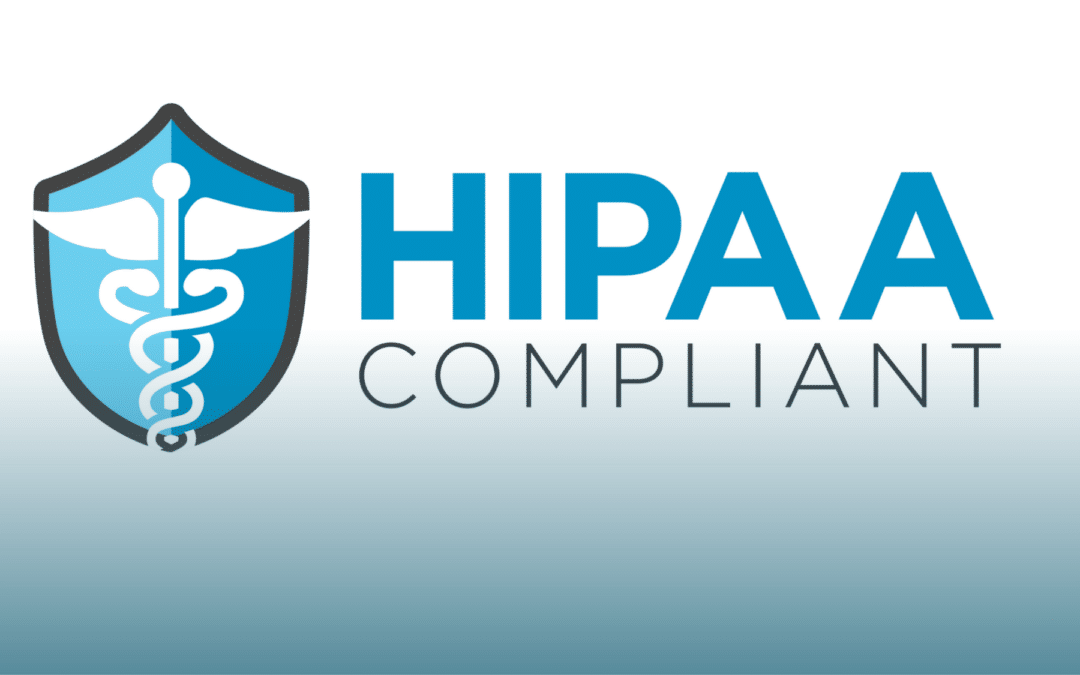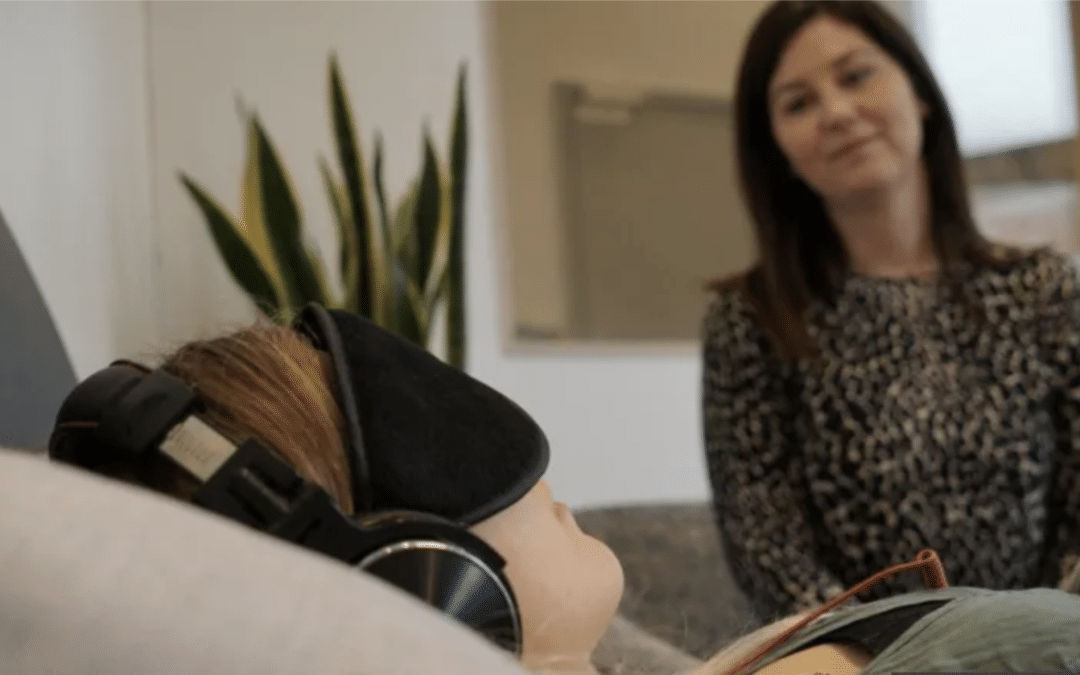
by Thomas Lethenborg | Jan 17, 2022 | Blog
Monsenso A/S, a technology leader in digital health solutions for mental health is HIPAA compliant. The Monsenso digital health solution that connects individuals and clinicians to provide optimal care adheres to the highest standards for data security and privacy. In addition to being HIPAA compliant, Monsenso holds ISO 13485 and ISO 27001 certifications, Cyber Essentials certification, a TGA certification and class 1 CE mark.
The Health Insurance Portability and Accountability Act of 1996 (HIPAA) was enacted by the U.S. Department of Health and Human Services (HHS) and is a federal law that mandates the creation of national standards to protect patients’ sensitive health information from disclosure without their consent or knowledge.
To read more about our data protection, download our Data management & Security fact sheet.
About Monsenso
Monsenso is an innovative technology company offering a digital health solution. Our mission is to help provide better mental health to more people at lower costs. Our solution helps optimise the treatment of mental disorders and gives a detailed overview of an individual’s mental health through the collection of outcome, adherence and behavioural data. It connects individuals, carers and health care providers to enable personalised treatment, remote care and early intervention. Based on continuous research and development, our team is committed to developing solutions that fit seamlessly into the lives of individuals, increase their quality of life and improve the efficacy of mental health treatment. To learn more visit www.monsenso.com.
For additional information contact:
Bettina van Wylich-Muxoll
Chief Marketing Officer
Monsenso
+45 22 70 47 24
marketing@monsenso.com

by Thomas Lethenborg | Jan 19, 2016 | Patient Engagement
A new survey by Accenture revealed that 54% of consumers would like to use their smartphones more to interact with healthcare providers. Unfortunately, most healthcare providers have failed to adapt to their patients’ needs. Consumers complain that most apps offer a poor user experience, and they fail to meet their needs.
As digital patient engagement becomes the norm and consumers become unhappy with their care providers’ lack of mobile services, they may look for alternatives. Care providers need to meet consumer expectations by adopting mobile technology and improving the overall user experience.
The Accenture survey identified that although 66% of the largest 100 US hospitals have mobile apps for consumers, less than 40% of that subset have developed their own.
Unfortunately, merely having a mobile app is not enough. Often, healthcare providers fail to engage consumers with these apps due to poor functionality and poor user experience. The survey revealed that hospitals are engaging successfully with just 2% of patients!
Patient-centred apps published by disruptive innovators are gaining traction in the market by fulfilling the users’ demand. These disruptor apps are focusing on functionality and user experience in line with the patients’ needs.
Technology slackers pay the price
The Accenture shows that around 7% percent of patients have switched healthcare providers due to poor customer experience. This is the same level of customer dissatisfaction as seen with hotels and telephone service providers, and according to Accenture, these losses represent over $100 million in annual revenue per hospital.
As consumers bring their service expectations from other industries into healthcare, care providers are likely to see higher switching rates, on par with the mobile phone industry, cable TV providers, or even retail.
Nevertheless, the rewards are clear for those who get it right. According to a survey by RBC Capital Markets, between 55% and 69% of users who use online health tools reported increased satisfaction.
Today’s consumers expect to interact with their care providers digitally, and most of them are being let down. As a result, in the increasingly competitive healthcare market, providers that ignore mHealth technology today could lose valuable customers to the competitors who adopt this technology.
Partnering up with technology innovators
Inpatient experience and mobile engagement are both part of the holistic patient experience that can lead to customer retention or switching.
MHealth technology can help care providers succeed in an era of individualized healthcare, where patients are empowered to help manage their own care. To improve customer satisfaction, care providers should create a better user experience tailored to the functionality demanded by patients. Care providers should partner with technology companies presenting innovative solutions to create a mobile platform that is tailored to their specific patient needs. For example, partner with ZocDoc for appointment scheduling, InstaMed Go for bill payments or Monsenso to support the treatment of mental illnesses.
Reference:
Losing patience: Why hospitals must revive their digital health strategies.
https://www.accenture.com/us-en/insight-health-losing-patience.aspx

by Thomas Lethenborg | Jan 5, 2016 | mHealth, Patient Engagement
On the previous blog post, “Transforming health and social care with digital technology” connected health or technology-enabled care (TEC) was defined as the collective term used for telecare, telehealth, telemedicine, mHealth, digital health, and eHealth services. This type of technology can empower patients and carers by giving them more control over their health and social care needs. It can also help individuals to obtain more information regarding their health.
In broad terms, TEC can:
- Improve self-management through remote monitoring, education, and treatment adherence
- Tackle areas of unmet needs that traditional treatment struggles to address, such as mental health
- Supports the development of online patient portals and patient communities
- Transforms the relationship between patients, carers and healthcare providers to focus on co-creation
Enables self-management
Nowadays, patients and their carers use technology to research information online, identify treatment options, rate providers, and share their experiences. Healthcare needs to acknowledge that emerging technologies offer a tremendous opportunity to transform the way people engage with their health.
Besides connecting patients and providers, digital technology leads to better outcomes and a more personalised service by educating patients in regards to their health-related issues, enabling remote monitoring, and supporting treatment adherence.
Informs and educates patients and carers
It is estimated that 75% of the UK population goes online for health information. Websites, apps, videos, texts and free online courses are being used to educate and provide information to patients and their family caregivers [1].
Figure 1 displays the most common category of mobile apps: fitness, medical reference and wellness apps, which provide information with other very limited functionalities.
Figure 1. Digital health app category, percentage share in 2014.

The use of digital technology to educate patients and carers is a crucial driver of patient engagement. Surveys suggest that patients are more likely to make better choices and be engaged in their health if they can access information quickly.
Digital technology connects patients and providers, leading to better health outcomes and a more convenient and personalised service, through informing/educating, two-way remote monitoring, and supporting treatment adherence [2].
TEC can help carers understand and support those they care for by:
- Providing psychological reassurance
- Enabling carers to co-ordinate their work-life-care balance through supporting flexible hours and remote working patterns (approximately 2.3 million people have had to give up work to become carers and three million have reduced their hours)
- Delivering peer-to-peer support
Facilitates remote patient monitoring (RPM)
Remote monitoring uses technology to monitor changes in patients’ health status outside conventional clinical settings.
Historically, it allows a patient to use a device to perform a routine test and send the test data to a healthcare provider. Initially, it depended on a healthcare provider recommending its use to patients. However, digital technology has increased the potential for remote monitoring and, with the advent of apps and wearables, patients are increasingly bringing the innovation to doctors [3].
New advances in the development of biosensing wearables are spreading their capability beyond simply tracking activity. New devices can monitor a broad range of physiology (from posture to brain activity) and convert this information into outputs, through advanced connectivity and computing power.
Biosensing wearables can support people with chronic conditions, automating monitoring and detecting real time changes in an individual’s health status. Data from biosensing wearables can be uploaded to an Electronic Patient Record (EPR) and this information can be used to display an overview of a patient’s medical history in real-time, supporting early diagnoses and early intervention.
If a negative change occurs, patients, family caregivers and healthcare providers can be alerted quickly, preventing emergency admissions.
Increases treatment adherence
In bad cases, failure to follow treatment can cause a patient’s condition to deteriorate, leading to an increased likelihood of hospital admission, permanent disability, or death. Electronic reminders and alerts, via text SMS or apps, can remind patients to follow their treatment regimens, thus improving health outcomes.
The World Health Organisation has calculated that adherence to long-term therapies in developed countries is around 50%, and is even lower in developing countries [4].
In the UK, between one-third and half of all medicines prescribed for long-term conditions are not taken as recommended. It is estimated that the cost of unused or unwanted medicine is around 100 million GBP per annum [5].
Improved adherence allows healthcare providers and pharmaceutical companies to obtain a better understanding of the impact of drugs, including any complications or drug interactions, providing useful data for research. An increasing number of pharmaceutical companies are investing in digital TEC projects to increase patient adherence to the drugs they produce. Likewise, patients and carers are increasingly using digital health software to register and monitor medication intake [6].
References:
[1] Valuing Carers 2011: calculating the value of carers’ support, Carers UK and academics at the University of Leeds, May 2011.
http://circle.leeds.ac.uk/files/2012/08/110512-circle-carers-uk-valuing-carers.pdf
[2] Putting patients first. The NHS England business plan for 2013/14 and 2015/16. https://www.england.nhs.uk/wp-content/uploads/2013/04/ppf-1314-1516.pdf
[3] Primary care working differently: Telehealth and telecare –a game changer for health and social care, Deloitte UK Centre for Health Solutions, December 2012. http://www2.deloitte.com/content/dam/Deloitte/uk/Documents/life-sciences-health-care/deloitte-uk-telehealth-telecare.pdf
[4] Medication Adherence: WHO Cares? Mayo Clinic 2011. http://www.ncbi.nlm.nih.gov/pmc/articles/PMC3068890/
[5] Aston Medication Adherence Study, Aston University. See also: http://www.aston.ac.uk/lhs/research/health/pharmacy/adherence/
[6] Mobile apps, fighting for patient adherence, Mobile health global, December 2014. See also http://www.mobilehealthglobal.com/in-the-news/news/109/mobile-apps-fighting-for-patient-adherence
[7] Psychological Therapies, Annual Report on the use of IAPT services: England – 2013/14 Experimental Statistics, Health and Social Care Information Centre, September 2014. http://www.hscic.gov.uk/catalogue/PUB14899/psyc-ther-ann-rep-2013-14.pdf





